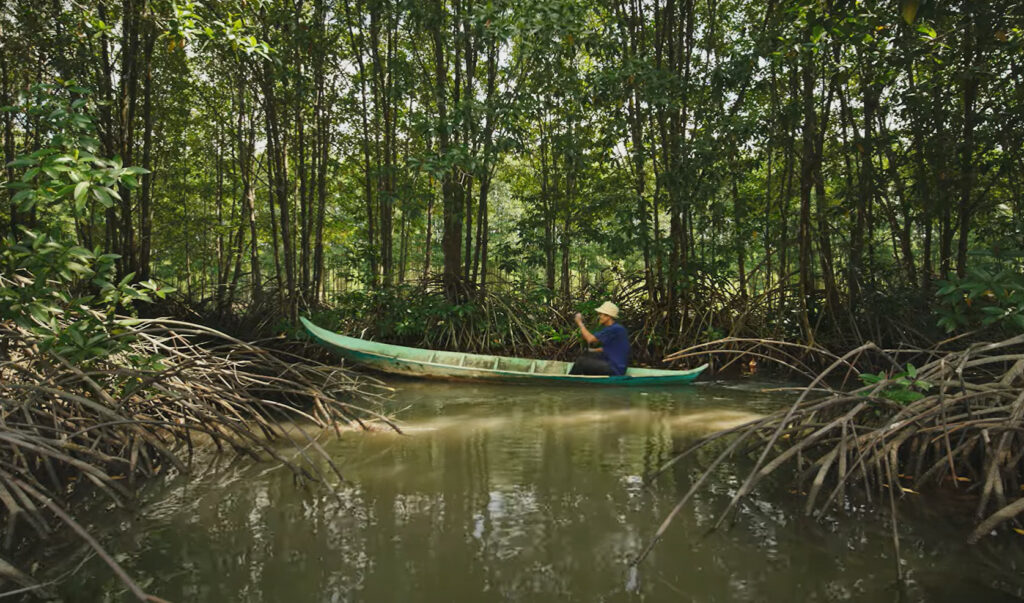BAP Spotlight Story: Springhills Fish
BAP Spotlight Stories were created as way to highlight BAP-certified producers around the world and the stories of the people behind them. If you’re interested in being featured in a spotlight story, reach out to us here.
The following questions were answered by RJ Taylor, owner of Cedar Crest Trout Farms (which operates the brand Springhills Fish) in Ontario, Canada.
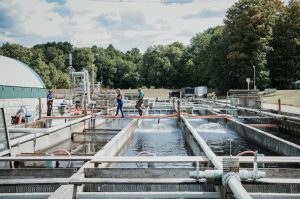
BAP: What inspired you to become involved in the seafood industry?
Springhills: My sister Arlen and I are second-generation fish farmers. We both left the family farm at 18 and swore we would never be fish farmers.
Arlen went on to work in international development in post-conflict areas like Angola and Iraq. I led science outreach initiatives for several large research centres across Canada.
As our family business grew to include more farms and more customers, there started to be a need for Arlen’s background in operations and animal health. Soon after, to keep growing the business needed my expertise in communications, sales and finance.
Even after five years, I have not regretted coming back for a second. Fish farmers are some of the most progressive and eco-focused people I know. And there is an endless supply of problems to tackle and fun to be had with our team!
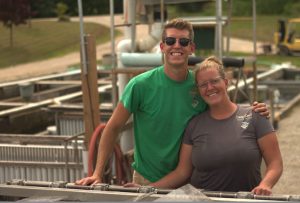
BAP: Tell us a little about your company.
Springhills: Springhills is a second-generation fish farming business in Ontario, Canada. We raise rainbow trout, coho salmon and Arctic char. We hatch most of the juvenile trout that other Ontario farmers raise up, and we also grow-out and process our own fish.
When the pandemic started, we were worried that we’d lose the farms because of how disrupted the seafood industry was. In those first months of lockdown, our team came together and started cutting trout and delivering it to our neighbour’s houses.
Two years later, we’ve grown into a whole new processing plant; we’ve diversified with new types of fish, started partnerships with other farmers and fishers, and now deliver to more than 1,500 homes and stores every month across the province!
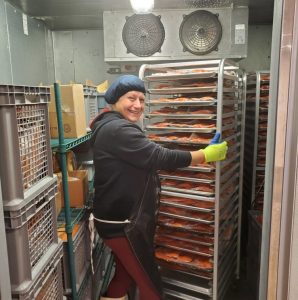
BAP: How are you involved in the local community?
Springhills: We are so grateful for the communities that we work within that we try to give back whenever we can. We regularly donate to local food banks, fishing derbies and charity auctions.
Arlen and I are both a bit eco-obsessed. She sits on the local chapter of Trout Unlimited, which focuses on rehabilitating native fish populations in local rivers. I sit on an advisory committee for the province’s species at risk, and a second for innovation in the livestock sector.
Our father always believed in pushing the seafood sector to grow and get better, and he bestowed that spirit in us too. Both Arlen and I are heavily involved in our local aquaculture association.
Recently we joined a new partnership with Sheshegwaning First Nation to raise fish on Manitoulin Island, and we are thrilled for even more opportunities for school tours, farmers markets and engaging online.
BAP: Why did you choose to become BAP certified? How has it been beneficial for your business?
Springhills: BAP certification is one of the easiest ways to show the public, the regulators and retailers that you are growing an eco-friendly protein.
It is no secret that people are suspicious of where their fish comes from, and they should be. There is a lot of untrustworthy activities taking place along the seafood supply chain.
We wanted BAP so that we could say with confidence that we were raising fish in the best interest of animal welfare, the environment, our staff and our community. As our business grew from one family farm to six farms and a processing plant, it was the BAP standard that helped us modernize everything from our record-keeping, health and safety, and biosecurity.
We have over 10,000 followers on social media, so we get a lot of inquiries online. If people want to question how our farm practices, we point to the rigorous BAP audits. If they question our impact on the rivers, we again point to BAP.
Heck, even if they say “I only eat wild fish,” we gently suggest that isn’t a useful declaration for their health or the planet, and instead recommend saying “I only eat BAP certified fish.” And now that we are fully integrated, we truly understand that raising fish ethically and ecologically — which is what BAP is all about — actually yields a better product at the end.
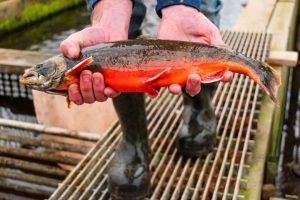
BAP: Why do you love working in aquaculture?
Springhills: For most of our 30-year history, we were one step removed from the people eating our fish. Now because we are processing and delivering direct to homes, we engage with people about fish every single day.
This has transformed my relationship with aquaculture, and over the last two years I have fallen in love with it all over again. I know many of my team feels the same way.
We love caring for our animals. We love the outdoor and seasonal nature. We even love solving the endless challenges that running a farm brings.
But now understanding where the fish goes makes us love the fact we’re feeding people. Not only that, we are feeding them with tasty, sustainable and healthy food that they look forward to putting on the table for their family.
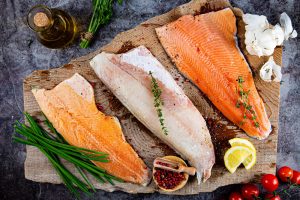
You can follow Springhills on Facebook and Instagram @springhillsfish!


